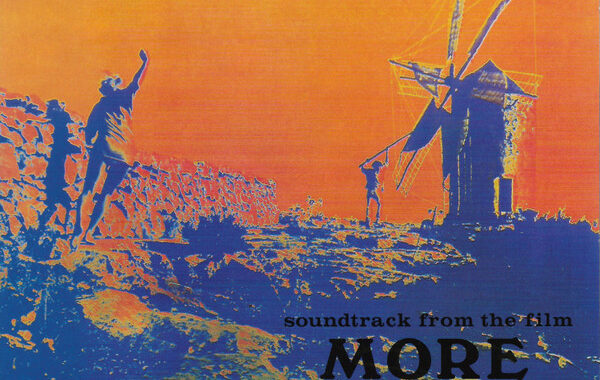That’s what songwriter and then aspiring band leader Roger Waters had nicely planned beforehand. If the film isn’t great, then I’ll just make sure the accompanying music is worth it. Prior to the recordings, there was still a task to be completed. Syd Barrett, co-founder of the group, and up to that point the main contributor of most songs, was getting crazier in his head. His behavior was increasingly unpredictable and paranoid due to increasing intake of mind-altering substances. Barrett more often than not failed to show up for rehearsals, and when he did, he would stare at the tips of his shoes for minutes on end. So he was reluctantly sidelined. The band wanted to move forward. Soundtrack From The Film More was released in 1969 and became the first album without Barrett.
“We cry and cry, sadness passes in a while” is still sung in the opening track.
Yet, there seems to be little else wrong. At least in the rest of the lyrics. Nature is sought after. More is earthy, dreamy, pastoral, summery. You see the English landscapes pass by. Some songs have no lyrics at all. However, blues, jazz, and folk can be heard. The execution is more impressionistic than straightforward. The drug atmosphere in Main Theme is lightly intoxicating. The sudden bursting and application of experimentation came later.
Nor does More contain Waters’ later commitment. Yet an announcement is made. We hear whistling birds and a doom organ at the beginning. There are many things lurking here that will be expressed on later albums. The carefree next to the subliminal and uncanny. And then there are all kinds of mood swings. In addition to the innocence expressed, there is suddenly the brutal violence in the form of the splitting hard rock of The Nile Song and Ibiza Bar. Hard rock indeed, which wasn’t really a genre at the time. Listen further to those ethereal sounds in Quicksilver. Bands like Tangerine Dream surely took notice of this back then and later built an entire oeuvre upon it.
And because those later albums became such classics, this soundtrack never got the chance to show its true nature. The opinion about it has never actually been adjusted, which has meant that even now few people pay attention to it. For hardly anyone, this is a favorite Pink Floyd. It usually remains lying in second-hand bins. Dog-eared, discarded. The album may not have the urgency of many other Floyd releases, but just imagine if this had been the only LP by the British band, then it would undoubtedly have been hailed as a psychedelic (cult) classic.

